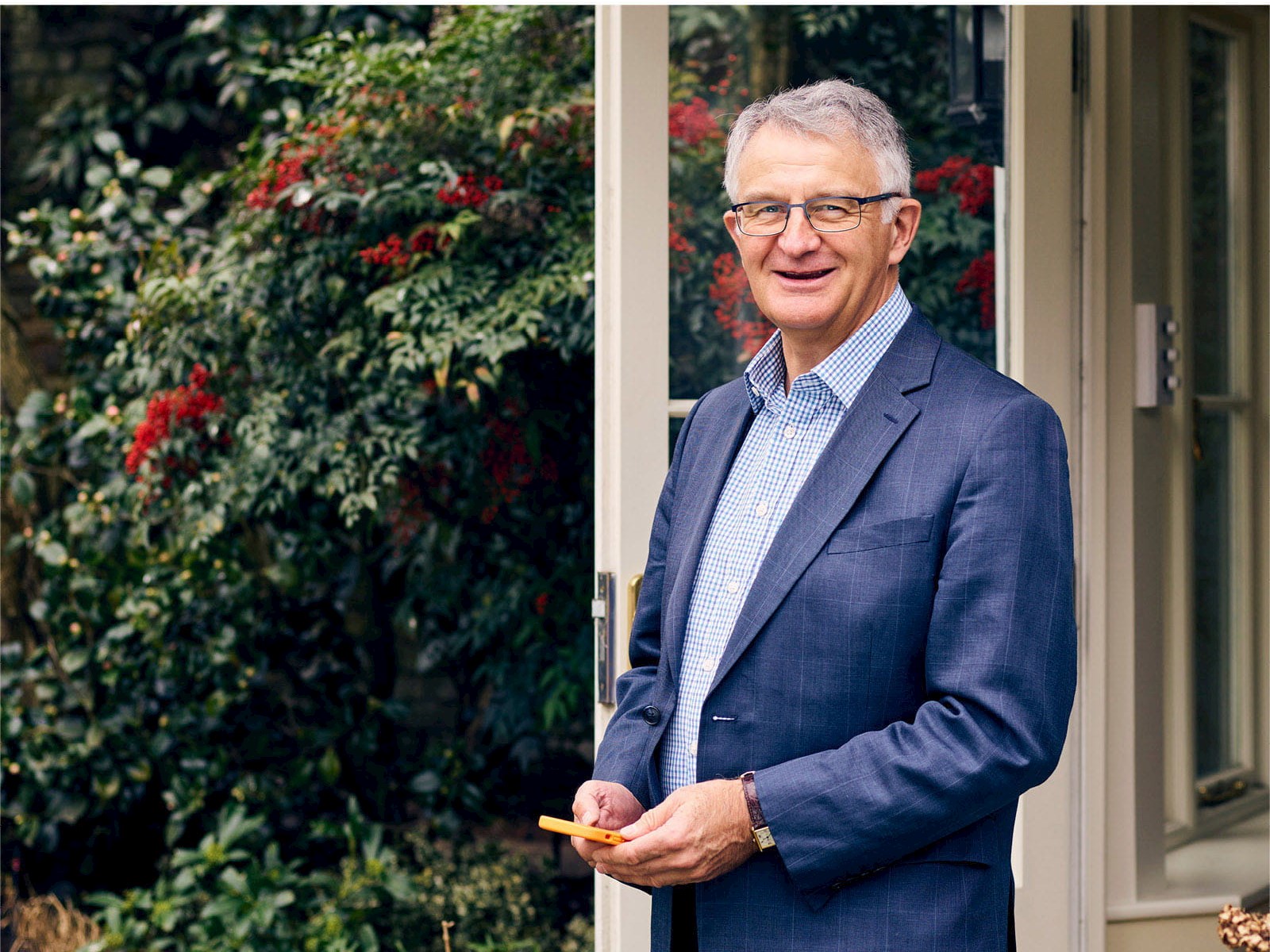Meet four experienced board members who all understand the power of a strong culture for any organisation to achieve its long-term goals.
Jacqueline Tammenoms Bakker, Co-owner, Scheltema Tammenons
Jacqueline Tammenons Bakker, who has served non-executive directorships at Tesco and media company Vivendi in recent years, says honesty is a crucial ingredient of healthy corporate culture.
Having refused to take on boardroom roles when she was “not convinced that the board was there to discuss the difficult issues”, Bakker says her expectations regarding culture were instilled during her time at Shell in the 1970s.
“Quite early in my career when I was quite inexperienced, I ran into a sticky situation involving a potential fraud,” she says. “But the response of the company confirmed that if you ran into a difficult situation, you would be supported, which showed a willingness to do the right thing and signalled real integrity.
“Having an experience like that in your early career is hugely important,” adds Bakker, who then went on to work at McKinsey and Unilever.
At each business, she found different cultures as well as shared features – such as an openness and willingness to collaborate – underpinned by core values. At Unilever, which was frequently acquiring new companies, “a brilliant core value came through in a statement: ‘your success is my success’.
“For me it was a transformative way to look at the world,” she says, “to think about how you work together to achieve success.”
These are learnings that Bakker has held on to as she joins boards and considers how they can effectively drive culture at their organisations. It translates into the guidance she offers at the coaching firm she co-owns, Scheltema Tammenons, to candidates looking at joining boards. “They have to ask: ‘Am I joining a company that isn’t sending out any red lights in terms of culture?’” she recommends.
And for those who have joined a board: “How do you contribute to the culture there? You’ve got to be quite modest about what you can do, given it’s the executives who are driving the business on a day-to-day level. But you can send important signals by putting things on the agenda if they’re not there, or at least ask for more time to be given to them.”
Bakker offers the example of the strong emphasis on safety management she witnessed at Shell. It’s an issue she says should be a discussion for most boards and one that gets right to the heart of an organisation’s culture.
“You can bring much of the same thinking to all companies,” she says. “Take, for example, the value of reporting an incident, where people should be praised for reporting a near miss and can learn from it.
“As a board member, you should encourage reporting on safety and make it a broad topic, regardless of the type of organisation you’re in, because it allows you to examine other aspects of the culture of a company. Ultimately, it poses the question, how prepared are people to own up to mistakes?”

David Buckley, Chair, Royal Bank of Canada (Europe)
Taking on a diverse set of board appointments is key to developing an understanding of the cultural drivers at organisations.
David Buckley, Chair of the Royal Bank of Canada in Europe (RBC Europe), has held key positions at major financial institutions throughout his career, including managing director roles at Morgan Stanley and Goldman Sachs.
In addition to this sector specialism, he says sitting on the boards of the London Philharmonic Orchestra and the University of Manchester, as well as chairing the board of the Yehudi Menuhin School, has helped him developed a broader appreciation of what culture means across a wide range of organisations and sectors.
“A good culture needs to support the objectives of an organisation and its stakeholders, and so the definition of good can be quite different between a financial services company and an academic institution,” he says.
Buckley suggests a good culture is one that offers a balance of outcomes for all the stakeholders of an organisation, whether shareholders, employees, regulators, funders, government or “whoever else has a say and a view on how an entity should be run”.
It’s a philosophy informed by Buckley’s time chairing challenger bank Redwood Bank, where “the right balance had to be struck between the objectives of its two significant shareholders, one of whom came from an entrepreneurial business background, while the other was a local council”.
An important step in bringing stakeholders together for the benefit of the bank in its early days was forming a ‘culture club’ – “a grouping of employees who met regularly to discuss cultural issues within the firm. This gave employees a voice in the running of the firm from the outset and was immensely empowering for them. Issues could be identified and tackled quickly before they became problems.
“Being able to cross-fertilise what I’ve learned in other organisations is powerful for the organisations I work with because I’m bringing different perspectives to the problems they face,” says Buckley.
It can be seen in practice in RBC Europe’s recent takeover of UK wealth manager Brewin Dolphin. “We put the emphasis on culture right at the top of the agenda because, in my experience, mergers can be difficult to execute on if that part doesn’t work well,” he explains.
“Consistency of culture between two firms that are merging ensures shared values and [a shared] approach, which helps difficult decisions to be taken with minimum disruption.”

Moni Mannings, Founder, Empowering People of Colour (EPOC)
“Culture eats strategy for breakfast,” legendary management consultant Peter Drucker once said. The quote may be well known, but Moni Mannings says she never fully grasped its meaning until she started working with a range of organisations.
Mannings, who has a portfolio career that includes non-executive director roles at easyJet and Hargreaves Lansdowne, and is founder of peer network EPOC, describes culture as a “manifestation of behaviours, habits and rituals and the things that we honour”, and says understanding these elements is key to achieving an organisation’s goals.
“When things are going well, you don’t necessarily attribute it to culture, you attribute it to good decisions and efficiency. But you’ll certainly notice it when things are not aligned and culture is not working well,” she adds.
For decades, corporate strategy has been primarily about profit maximisation, but as the demands of shareholders give way to those of a broader set of stakeholders, companies must meet a more complex set of objectives.
With that in mind, it is vital to understand what kind of culture needs to be in place if an organisation is to deliver on those wider expectations – and the best place to understand that culture is in the boardroom – says Mannings.
She spends considerable time talking to every member of a board when she joins a company “to get a bit of a proxy for what the culture might be in the organisation”.
As a result, Mannings has developed keen antennae for how boards work, having moved into the corporate space after a legal career in firms including Clifford Chance, Simmons & Simmons and Olswang.
Non-executive director roles have since included Dairy Crest, Polypipe and Breedon Group, but Mannings says it was at investment bank Investec Group that she best felt the ability of a board to influence culture across an organisation.
At Investec, where she has been a non-exec for seven years and is now senior independent director, Mannings says she witnessed the importance of purpose in defining the bank’s identity. She says this is defined in the bank’s mission statement: “to create enduring worth and to live in society, not off it”.
These are not just hollow words, she says, but the result of a root and branch campaign two years ago to define the bank’s culture.
In 2021, Moni Mannings launched EPOC, to connect high-potential leaders of colour seeking non-executive board opportunities with chairs and other decision-makers looking to create more inclusive organisations.
As well as improving the diverse thinking of a board, Mannings says people of colour can add to board culture in another sense.
“People of colour have often had to develop the ability to influence despite not holding power, to constructively challenge without alienating or becoming marginalised, and to successfully navigate through complex ambiguity; all skills that are really useful as a board members,” says Mannings, in recognition that a non-confrontational approach is especially valuable when an organisation faces challenging times.

Ian Durant, Chairman Designate, Britvic
Even when culture is recognised as a strategic priority for the board, its strength within an organisation will be challenged by everyday business risks, as well as by the changing composition of the board itself.
Finding ways of keeping company culture intact amid rapid change is vital, says Ian Durant, who has sat on numerous boards, including those of DFS, Greggs and Greene King, and is now Non-Executive Chair of search firm Warren Partners and Chairman Designate of drinks group Britvic.
“We appear to be in a permanent crisis, moving from COVID-19 into supply chain challenges, where businesses need to be more agile than they’ve had to be in the past,” he says.
“An environment that requires changes in strategy and the way you run your business is a good example of why boards need to think about whether their organisation’s culture encourages agility or prevents it.”
Durant’s view is that a board is best equipped to understand and address a challenging commercial environment when it features a diverse mix of views.
“We all bring our experience to the table. But the more varied that experience is, the more likely it is that you’re going to have a meaningful conversation and emerge with something that is quite robust for your organisation,” he says.
“It can help you ask questions about how you do things in a way that you wouldn’t ask if you hadn’t had those outside experiences, hence the importance of non-executive directors who have one foot in the business and one foot outside the business, and who bring varied experience.”
He says that the international roles he undertook early in his career, including a position at Hong Kong’s Jardine Matheson, a listed group with family shareholder control, helped develop his mind set.
“The family influence had a significant impact in terms of the time horizons that you are thinking about for the business. It encourages you to think long term, compared to businesses that don’t have a family influence,” says Durant.
“When you’re working in different cultures, you learn a lot about the personal skills that you need to bring to managing a business and running a board.”
CPD courses for boards
ICAEW offers virtual CPD courses to support those considering becoming a board member and those who have recently joined a board, as well as those looking to develop their skills as a board director.


